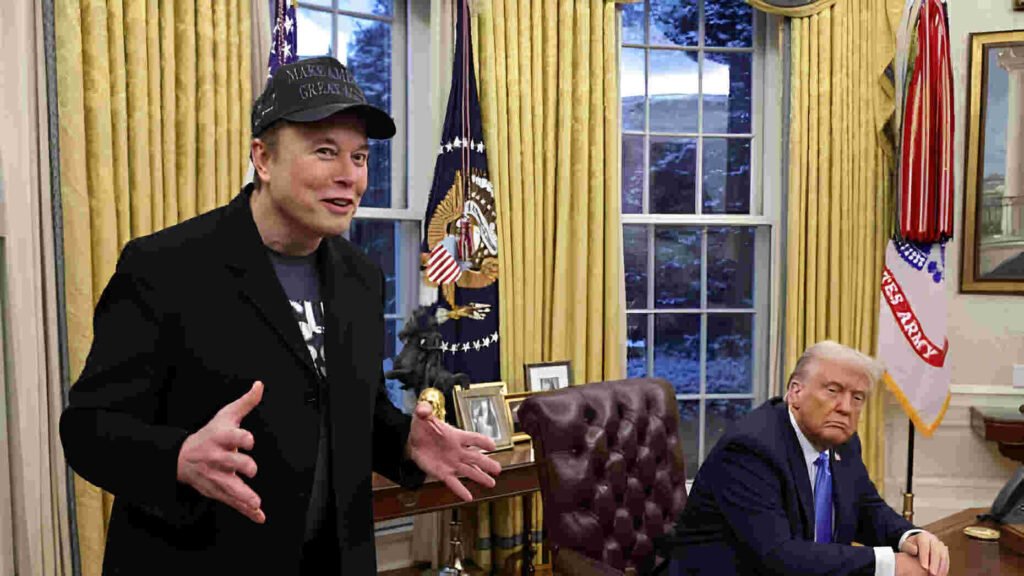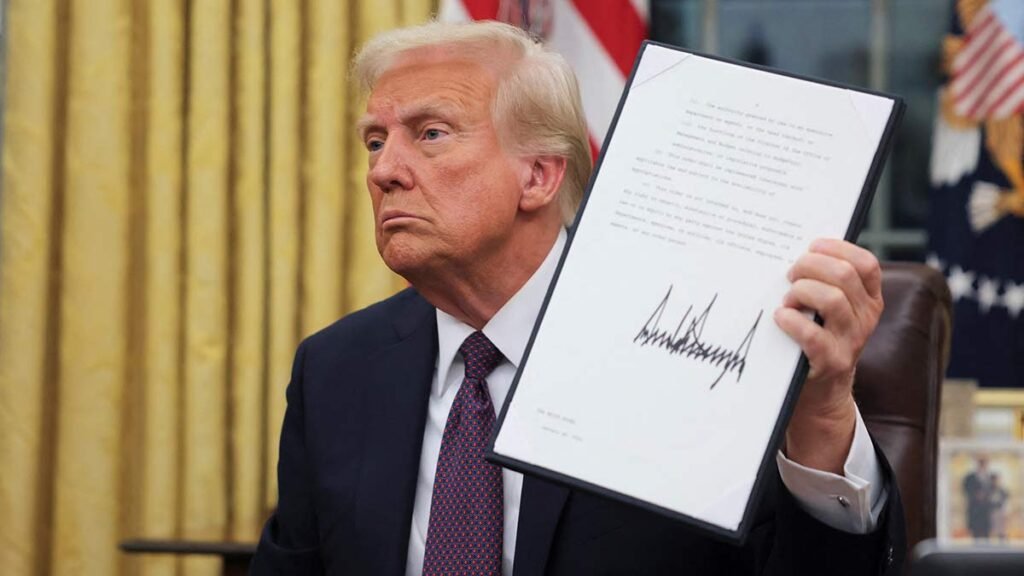
Large-Scale Layoffs Across Key Federal Agencies:
President Donald Trump and his adviser Elon Musk carried out a major plan to refine the United States bureaucracy, resulting in the dismissal of more than 9,500 federal employees on Friday, February 14, 2025. The decision impacted several sectors, including federal land management, health services for veterans, and financial and environmental monitoring agencies.
The mass layoff includes employees from the departments of Interior, Energy, Veterans Affairs, Agriculture, and Health and Human Services. This action mainly targets probationary employees who are in their first year of work, since they have weaker job protections than permanent employees.
A Plan for Effective Bureaucracy and Cost Savings:
The move is part of a broader strategy by Trump and Musk to make government bureaucracy smaller and more effective, as they believe the system has become much broader and ineffective.
The dismissals, as reported by Reuters and other major U.S. media sources, are in addition to approximately 75,000 workers who accepted a buyout offer from Trump and Musk to voluntarily leave their jobs, according to the White House. That equals about 3% of the total civilian workforce of 2.3 million people.
Trump believes that the federal government is too large and loses a lot of money due to waste and corruption. The government has a debt of about $36 trillion and had a deficit of $1.8 trillion last year. There is an agreement among the two major parties on the need for reforms in this regard.
Political Reactions and Growing Concerns:
However, the Democratic Party in Congress argues that Trump has exceeded his limits in managing federal spending, while most Republicans are supporting these measures. On the other hand, the rapid and widespread implementation of these policies has increased tensions within the Trump administration itself.
Some White House members, including Chief of Staff Susie Wiles, are unhappy with the way the policy has been implemented. According to sources within the administration, some decisions were taken without proper discussion with other senior officials.

Further Changes: Removing Job Protections and Cutting Aid:
In addition to job cuts, Trump and Musk have tried to end civil-service protections for career employees, frozen most U.S. foreign aid, and attempted to shut down institutions such as the U.S. Agency for International Development and the Consumer Financial Protection Bureau (CFPB) almost entirely.
The U.S. Forestry Service has decided to fire about 3,400 newly recruited employees, while the National Park Service is laying off about 1,000 employees. According to sources, the Internal Revenue Service (IRS), a tax collection body, is preparing to lay off thousands of employees next week, a move that could put pressure on resources ahead of Americans’ April 15 deadline to file income taxes.
Other spending cuts have raised concerns that essential services could be affected. For example, a month after devastating wildfires in Los Angeles, federal programs have stopped hiring seasonal firefighters and suspended the removal of fire hazards, such as dry wood from forests, which could further increase the risks.
Concerns Regarding Musk’s Growing Influence:
Critics have questioned Elon Musk’s aggressive approach, the world’s richest person, as well as gained extraordinary influence in trump’s presidency. Some analysts say that laying off such a large number of employees can have a negative impact on the country’s economy and social stability.




